[223] Variety is the Spice of Life
First issued February 2015. Revised and updated September 2019.
In which we consider the subject of Choice. Now we have lots of choices. Then – not so many. To be honest there was virtually no choice.
We have looked at information. Since the time I grew up, the world has changed from providing almost no information to providing too much – what we now sometimes see as information overload. We could not possibly take in all that is available to us.
The same is true of choice. We now have more choices than we can possibly manage. I am going to do a whistle stop tour round the life of the 1950s, throwing in lots of random examples. For dramatic effect, I will generally look at things in reverse, looking first at now and then the fifties.
Let’s go shopping, have lunch and a coffee break, manage our money, get married, set up a new home, go on holiday …
Coffee stop
Come on, be serious, coffee and snack comes first before the shopping.
- Now: In most shopping areas, there are more coffee shops than all the other shops put together – familiar chains like Starbucks, Costa, Nero, and lots of more local ones. Many supermarkets and shops have a café inside. We have a Marks and Spencers not too far away with four or five cafés in the store.
- Then: In a large High Street shopping area, there were about two large department stores with their own café/ restaurant. If you looked around you might find one elsewhere but you probably would not. People did not have the time or money for coffee.
- Now: Americano, latte, flat white, cappuccino, espresso, or mocha? Small, regular, or large? [Regular, another Americanism. If we had the choice it would have been medium.] Hot or cold milk? Full, skinny, semi-skinny? Extra shots? Syrups? And the latest choice option – would you like (to pay extra for) a special blend of coffee beans?
- Then: Coffee, pre-brewed, poured from a large pot. We couldn’t make decent coffee then. To be honest, for almost everyone it would have been tea, also pre-brewed, poured from a large pot, with milk. (No choice of tea or milk.) Tea was the national drink, although mostly we had it at home.
[Maybe this isn’t the time to mention that a pot of tea – enough for two or three cups – would have cost 1p in today’s money. Coffee was twice as expensive. Perhaps that was one reason why we had tea!]
Shopping
Let’s pick a few examples from food shopping, household items and clothes.
- Food:
- Now: We go to the nearest supermarket or shop on-line. Taking a few examples, Tesco on-line offers 102 types of sliced bread, 77 cheddar cheese, 224 fresh milk, 58 sugars, 843 soft drinks, 113 pizzas (fresh or frozen), 65 prepared sandwiches and 398 yoghurt. [I’m not going to check the web and update the figures for 2019. They are just for illustration.]
- Then: There were no supermarkets. At the bakers, we had a few different versions of proper, crusty bread but just one sliced, white bread. (We never bought sliced bread. It was too expensive. It was not for ordinary use.) At the grocers, cheese came in a few different types, one of which was Cheddar. You probably had a choice of strong or mild Cheddar, cut to order. (Not available pre-sliced.) Milk was milk, what we now call full-cream milk. (You could also buy Jersey milk, with even more creamy fat.) Sugar was either granulated, castor, icing, soft brown or Demarara. Soft drinks covered two or three types of fruit squash and a few (expensive) fizzy drinks, certainly not bottled water. We did not have pizza or pre-packed sandwiches and yoghurts had not yet become available. Pasta – not sure. We definitely had spaghetti and macaroni. (See illustrations!)
[Lots to come about shops and what they sold.]
- Household:
- Now: Continuing in the modern supermarket, here are some more statistics from Tesco. Washing powder, 53; washing capsules, 52; washing liquids and gels, 89; fabric conditioner, 97, and toothpaste, 139.
- Then: We had about half a dozen makes of washing powder. (No liquids, gels or capsules!) No conditioner. There were two or three makes of toothpaste, each of which may have come in two or three sizes.
- Clothing:
There are many examples and I will deal with clothing in a lot more detail later. If I want a new pair of blue denim jeans today, I go to Marks and Spencers, and have a choice of about ten styles with sizing choices for waist and leg length. On-line I have about fifty choices for jeans at M&S, and there are another ten or so suitable shops in the High Street.
When I bought my first pair of jeans, there was one little shop in Ilford, tucked away down a side street, that sold them. It was the only shop selling jeans. I used to turn up a few inches because leg lengths were not a size option. (Of course, in those days, only men of up to about twenty would wear jeans. I have never stopped wearing them.)
It was the same with other clothes, generally from department stores. Trousers were grey, flannel trousers; shirts for work were white shirts. We didn’t have a choice and we didn’t spend time being fashionable.
[Yes, of course it was different for women. Women have always felt more of a need to look good and the fashion industry knows where the market is. Most of the high street shops today that are not coffee shops are women’s fashions. I notice that! But their choices in the Fifties were very limited.]
Incidentally, I also noticed that M&S has 392 fragrances for women, and 114 fragrances for men. There were a few perfumes around in the Fifties for women. (Sorry, I can’t be precise. As a seven-year-old I was not into women’s perfumes.) For men, no way! After-shave as a Christmas present for men crept in slowly later.
Lunch
Time for a quick lunch.
- Now: As well as all the places where could have had coffee, (nearly all of which will do at least sandwiches, cakes, Danish pastries and biscuits,) we have lots of pubs, restaurants and fast food outlets for pizza, burgers, Chinese and Indian cuisine and lots more.
- Then: We had the same, very few cafeteria restaurants that we could use for coffee, mostly in large department stores – also a few in parks and stations. Pubs did not serve food. Most restaurants, which were few and far between, were relatively expensive. There were no fast food outlets. The only takeaways were fish and chips. [Transport cafés were for lorry drivers only.]
- Sandwiches:
- Now: The 65 sandwiches available from Tesco is perhaps a wider selection than would be available in a restaurant, but expect an array of complex filling mixtures. Now you also have tasted sandwiches, baguettes and probably even a choice of bread types.
- Then: Ham or cheese? (Not pre-packed, generally made while you wait.) You could have plain white bread or a plain white roll. That was cheese, not cheese and tomato, not cheese and onion, not even cheese and chutney. Things were definitely easier.
That’s enough about lunch, but while you sit over your coffee and sandwich, you probably glare at your phone or tablet. (Even I now have a fairly modern mobile phone.) You may browse the Internet; check your emails; log in to Twitter, Facebook, or Youtube; play Candy Crush or other games; or just take a few selfies. At many cafes, you borrow their papers to read. We used to talk to each other!
Money
- Banks and Savings account: Now: Hundreds to choose from – fixed rate, variable rate, index-linked, short-term or long-term. Banks and building societies offer similar facilities.
- Then: We had more banks to choose from but they were all the same. Two options for savings, a Savings account (instant withdrawal) or Deposit account (30-day notice). All gave same interest rates, linked to Bank Rate. There was no point in changing your bank. Building societies were not the same as banks, but all were the same as each other. They met monthly and publicly to agree rates.
[Today’s quiz question: Why is the word ‘publicly’ unusual?]
- Mortgages: Now: As for savings above, we have lots of options for interest only or repayment mortgages from banks or building societies.
- Then: Repayment mortgages were the only option. Only building societies did them. Rates were identical because they fixed them between themselves as for savings accounts. Rates were closely linked to the Bank Rate.
- Credit Card: Now: We have hundreds to choose from. Forms to open new accounts arrive, unsolicited all the time. Many people have several cards that they carry around with them, and pick one at random.
- Then: Credit card? What’s that? (Diners Club and American Express appeared about 1960 in the US. They did spread slowly to the UK, to a very small, rich minority. They were never the same as credit cards as we now know them.)
As I update this in 2019 I note that as well as credit cards we also have debit cards, loyalty cards, contactless cards and numerous other ways to pay via apps on your phone. Of course none of these existed then.
Getting Married
[We did things in the ‘right’ order then. Get married first, then set up house together!]
- Location: Now: Pick a hotel, country house, restaurant or almost any public building. Choose your room and setting. Spend thousands of pounds.
- Then: Some people used Registry Offices but I think the rest of the world looked down on such unfortunates and didn’t talk about them. Usually you used the church where the bride was a parishioner. You could pick the bridegroom’s church. Any other church would need to be negotiated with its minister. (The church and minister cost about £10. A choir was extra.)
- Service: Now: Design it yourself. Write your own vows.
- Then: Church of England Book of Common Prayer version – including ‘love, honour and obey.’ No choice of wording. You could pick the hymns, with the approval of the minister. Entry and exit tunes rarely varied.
[I could well do a whole blog about weddings.]
New House
We need to sort out a few things for the new house.
- Gas provider and tariff. Now: Lots of both to choose from. Incomprehensible to choose the best. (Tariffs aimed at getting people to change provider.)
- Then: No choice involved. Your provider was determined geographically. Unless you were a business, you went on the one and only domestic tariff. [I’m not sure whether the payment rates were the same throughout the UK. There may have been slight variations between regions.]
- Electricity: As for gas.
- Telephone (landline): As for gas
- Mobile phone and Internet: Be serious or pay attention! No chance of either then.
- Television: Now: Cable, satellite, freeview? Extra channels? Pick you recording device.
- Then: BBC only. ITV came from the late Fifties. No satellites, no cable TV, no TV recording of any type. [Expensive and poor quality reception. You probably didn’t have it anyway.]
Holidays
- Now: We have a vast choice of international destinations, air flight options and hotels, and also pre-packaged cruises and holidays.
- Then: We had seaside destinations in England, boarding houses and a very simple train ticket system. [More about holidays soon.]
Miscellaneous
A few more random topics.
Doctors
We did not have the option to choose an appointment to see the local GP. We went to the surgery and waited. If we needed to go to a hospital we were given an appointment. We did not choose the date and had no choice in the hospital.
Politics
Choice of who to vote for in elections – Conservative or Labour. Only in a few constituencies was there a Liberal (now Liberal Democrat) candidate. No Green Party, No UKIP. We waited until the age of twenty-one to get the vote.
One final area of choice, Telephone Number Enquiries: now we have a choice of many service providers, with their 118… numbers, competing with each other but all charging exorbitant rates. We had books, (Telephone Directories,) provided free and a Directory Enquiries number to call, also free. (Weather forecast and test cricket scores by telephone came a bit later, also free.)
Not everything about choice is good! (I warned you about being a Grumpy Old Man.)
‘PUBLICLY’: OK, look at words like magic, electric, cryptic, fantastic, supersonic … There are many of them and they all add ‘-ally’ to make an adverb: ‘magically, electrically …’ Not so for ‘public.’ There won’t always be a quiz question, but be prepared …
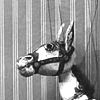

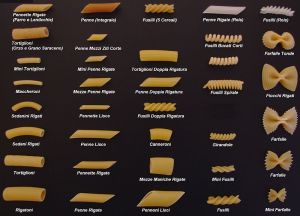
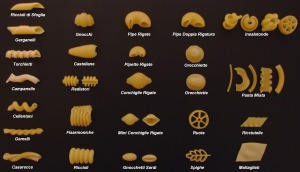
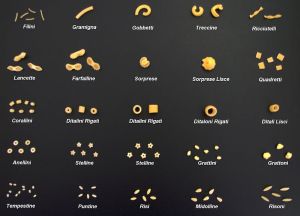
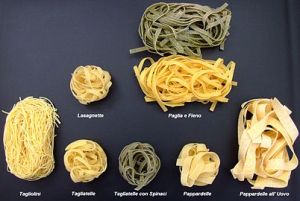
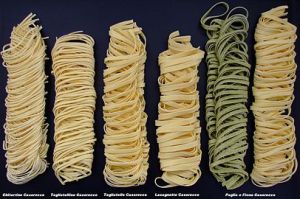
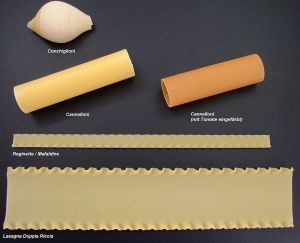
04/02/2015 at 19:22
So interesting. You are great!
LikeLike
04/02/2015 at 19:54
Thanks for your comment.
Please keep reading!
LikeLike
Pingback: [28] ‘Clever People and Grocers, they Weigh Everything’ | Remembrance of Things Past
Pingback: [50] Half a Century | Remembrance of Things Past
Pingback: [75] ‘If You See Sid … Tell him!’ | Remembrance of Things Past
Pingback: [93] Hands that do Dishes … | Remembrance of Things Past
Pingback: [97] Upstairs and Downstairs | Remembrance of Things Past
Pingback: [110] Dedicated Follower | Remembrance of Things Past
Pingback: [113] All Manner of Things Shall be Well | Remembrance of Things Past